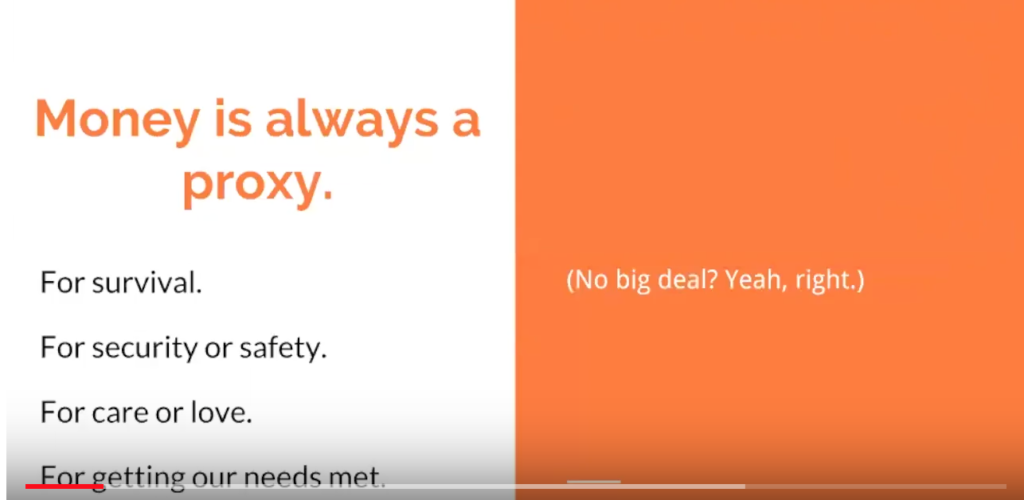Based on a conversation I had with a client recently, I’ve been thinking about trauma-informed frameworks. Specifically, I’ve been thinking about the collective illusion that individually, we’re each “doing it wrong” when it comes to money.
How is it possible that everyone is doing it wrong?
Our money stories are so informed by our experiences, and our money mindset is set by those stories. When large swaths of people are all feeling ashamed and hiding truths, something is very, very wrong.
Money is always a proxy for something else: and often that something is about survival, safety, care, and getting needs met: the very things trauma interferes with.
I’m interested in strengths-based models that allow you to build off what you’re already doing well, and make space for improvements to your life. Turns out, that is the very thing a trauma-informed framework can build.
This video is the start of a conversation – feel free to comment here or on fb and let me know what you think! More on the topic below the video.
Here’s a definition of trauma-informed practices:
Trauma–Informed Care and Practice (TICP) … TICP is a strengths-based framework that is responsive to the impact of trauma, emphasising physical, psychological, and emotional safety for both service providers and survivors; and creates opportunities for survivors to rebuild a sense of control and empowerment.
Take for example, someone who’s certain that they’re the only one who’s “falling behind” in their friend group. Or, someone who’s feeling that they’re far more in debt than others they know. Or someone whose parents’ generosity led them to be withdrawn in dealing with money. Or, someone whose experiences of scarcity have led them to have extreme spending/saving patterns.
Each of these people might feel they have a personal problem; but to address it effectively, they could use the framework of understanding that they ended up there because of a larger set of issues: they developed a reasonable response to an unreasonable situation.
With this understanding, you could look at your existing strengths, your behaviours, and come up with specific things to do that give you a sense of safety and control.

If you want to understand and hack your money responses, you might want to check out:
- Hacking Capitalism: A users guide to the money system
- Implicit Memory & Reactions to money
- Calm That ACK: Budget & Save course